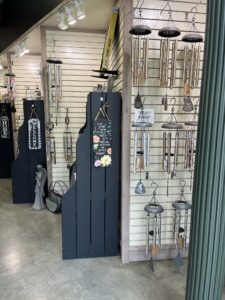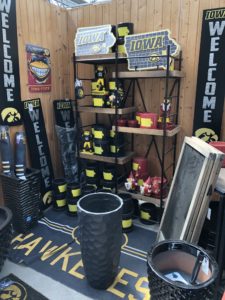DEFENDING YOUR PRICE POINT
“Defending your price point,” sounds more like a duel, than a strategy. It has the same guerrilla warfare ring to it as “fighting for profitability.” However, by taking the long view and working to establish a reputation for quality and service, a foundation for profitability emerges, and defending becomes building. Quality and service add significant value for the customer, and of the three elements price, quality and service the last two are the least likely to be imitated by the competition successfully and the most likely to keep good customers.
This business model requires dedication and risk taking. It also requires a huge investment in time, research and commitment. It’s a commitment to the long term as opposed to the short gain. Each sale becomes an opportunity to build a sound business.
Customers today have access to more information than ever. Comparative shopping is available in just a few computer keystrokes or in the apparent “huge” selection of products offered by the mass merchants. Ironically, the very size and scale of both these models give independent retailers and small companies a big selling opportunity. While each dealer may not be able to compete in size, they can successfully differentiate themselves by building a reputation for quality and service on a personal level. These qualities cannot be “shopped on-line,” nor can their value be under sold. They certainly never go on sale. It’s truly a “one customer at a time” approach to business.
A Case Study
As a small manufacturer, we are faced with the same problems as the independent retailer. We have to differentiate ourselves on more than just price. We don’t have the volume and deep pockets to compete with the big guys. Our strength lies in our uniqueness and our desire to produce the best product on the market.
It’s been many, many years since I started my career as a costumer for a local theatre company, but I learned several invaluable lessons that have stayed with me and that I can apply to the lawn and garden industry. First, costumes had to be built to last, as repertory shows often played for months. Costumes had to survive hot lights, sweat and considerable stress, just like gardening tools have to survive heat, sweat, dirt, etc. Second, quality materials “played;” they always looked better than the cheap or easy solution. There was nothing like three banks of unforgiving theatre lights to show up flaws or defects. My work had to look good under hot lights close up and from 200 yards away, so we always had to find the best materials and solutions for the overall quality of the show.
Later, when I became a serious athlete and designer in the outdoor industry, I learned another valuable lesson. Clothing became “gear.” It had to perform, and it had to last. It had to support the athletic experience, not be the experience by failing to work the way it was supposed to in the middle of a competitive event. Failure to perform could have meant the difference in an enjoyable experience or a disaster. Craftsmanship and performance were critical.
The customer
As a manufacturer, I think of our customers as people who shop for solutions, not gadgets. Durability and comfort are critical. They want to buy the best tool they can to get the task done, and they don’t want to purchase that same tool again and again. So, striving to build a loyal customer following by providing the best quality product and backing it up with good service is important. Occasionally, a customer doesn’t think our product lives up to our claims. We always replace the “offending” product and ask some questions: How were you using it, how long before the problem occurred, what do you think might make this better? These questions are not intended to give the customer the third degree, but to help us improve our product. Though we hate to hear that anyone might be dissatisfied, we turn it into an opportunity to improve.
Our company mission from the very beginning has been to provide products of the highest integrity and innovation. We strive to provide the utmost in function and fit. It’s a sound model and can work for retailer and manufacturer alike.
There are a few key elements in transforming the process of “defending your price point” into “building a foundation:”
- Select and/or develop products that are unique and easily identified as “quality.”
- Surround yourself with a knowledgeable staff and vendors who share the same values.
- Work consistently to build a reputation for quality and service.
- Guarantee your products even if the manufacturer doesn’t any time, any place, no questions asked.
- Use your guarantee as an opportunity to turn a bad experience into a positive one by guiding the customer to a better solution or a more knowledgeable approach.
- Finally, ask a lot of questions and listen to the answers.

















 Videos
Videos





